Everest Base Camp Tours FAQs
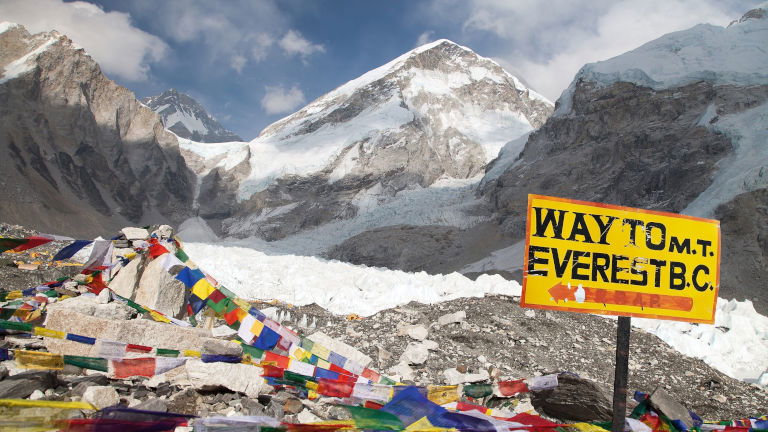
Want to take a tour to Everest Base Camp? Whether you are just starting your research or already have your tour to Everest Base Camp booked with us, here we answer some frequently asked questions that may help you plan and prepare. On each tour to Everest Base Camp on Global Journeys’ website you will find a set of trip notes with further details pertaining to each specific trip. These can be found below the day by day itinerary and inclusions for each tour and should be referred to in preparation for your tour to Everest Base Camp.
When is the best time to trek Everest Base Camp?
The peak season for trekking Everest Base Camp is October through November, when autumn brings warm and clear days. Things cool down from December through to February as winter welcomes snow to the mountainside. Winter still offers good trekking conditions as long as you aren’t afraid of the cold and come prepared with the appropriate level of warm gear. Spring sees snow turn to fresh blooms and the trails get busier as the warmer weather and pretty blossoms draw hikers to the mountains. The climate takes a turn in June, with monsoon season kicking off and clouding the trail through to September. Monsoon season brings with it cloud cover that often shrouds the view and rain that can cause floods and landslides. Weather can be unpredictable, and itineraries may need to be adjusted as necessary.
The temperature differs along the trail depending on what altitude you are at and the weather can be unpredictable. There can be quite a swing in temperatures on any given day, and it is important to be well prepared. In summer, the average temperature sits at 18°C (64°C) however temperatures can fluctuate between 25°C (77°F) on sunny days and drop below zero at night time. In winter, you can see lows of -17°C (-1°F) at night and the average maximum temperature usually sits around 4°C (39°F). The wind also tends to pick up, so allow for the wind chill. Spring and autumn are more moderate, with daytime highs sitting around 17°C (62°F) but be mindful that during night time at high altitude temperatures can still often drop to -12°C (10°F).
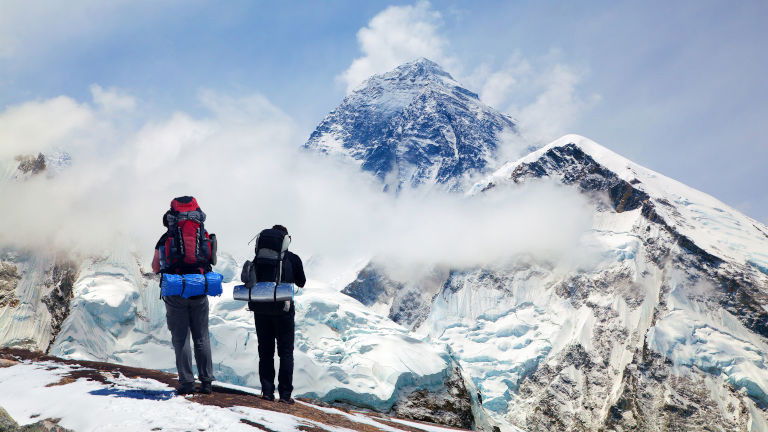
Where will I stay along the way?
Each tour varies, but for the most part you will stay in a combination of guesthouses, teahouses, lodges and tented camps during your trek. These are often simple with basic facilities, nestled in stunning locations. You may stay in multi-share accommodation along the trail (particularly at higher altitudes) and where private rooms are provided, bathroom facilities are often shared. Some bathrooms have western toilets, however, in some places you may only have access to pit toilets. Accommodation may have little or no running water, and often the running water will not be heated. Electricity is also limited or not accessible in some places. Check the ‘Tour Inclusions – Accommodation’ section on for your chosen itinerary on our website and refer to the trip notes for what to expect on your tour.
What if I am travelling solo?
You can join an Everest Base Camp tour as a solo traveller. All tours that operate to Everest Base Camp are small group tours which offer the perfect setting to foster strong bonds while experiencing something truly special. Itineraries accommodate solo travellers with no compulsory single supplement and accommodation ranging from twin to multi-share is typical. On some tours there is the option to pay a single supplement to have a private room, however, please note that on many trips this is only offered on hotel nights and may not be available at lodgings along the trail.
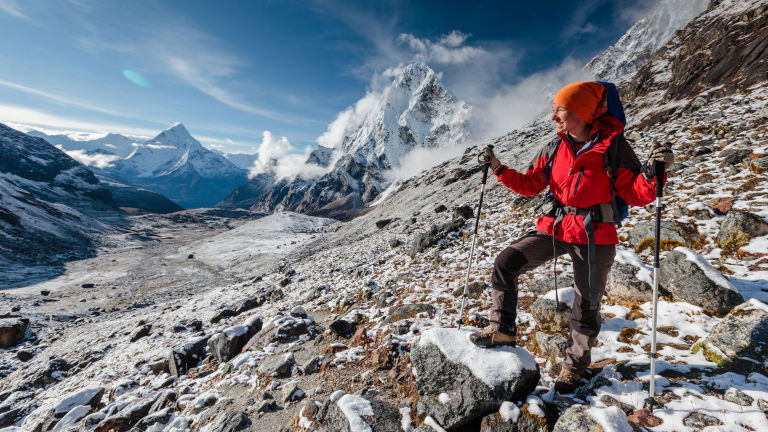
What level of fitness is required to trek Everest Base Camp?
It is important that you have a very good level of fitness to partake in an Everest Base Camp trek. You will be crossing uneven and demanding terrain at high altitudes and will be carrying the weight of your daypack. Each itinerary varies, and some are more strenuous than others. Tour Operators take the wellbeing of every traveller very seriously so it is important to read the itinerary and trip notes thoroughly to decide which trip is suitable for you and undertake proper preparation. If your tour leader considers it unsafe for you to participate, they reserve the right to exclude you from parts of the journey (without a refund) to protect your health.
If visiting Everest Base Camp is important to you, but you are worried about your fitness, there are some itineraries that are less demanding. The High Road to Tibet with G Adventures gives travellers the option to hike just 7kms from Rongbuk to Everest Base Camp, or take the bus instead. Intrepid’s Tibet Uncovered itinerary drives passengers to Everest National Park from where there is only a 4km round-trip hike to Everest Base Camp. Please note that these distances are covered at altitude so regardless of health and fitness everyone may react differently to the conditions on the trail.

Will I get altitude sickness trekking Everest Base Camp?
There is a risk of altitude sickness when trekking Everest Base Camp. Symptoms of altitude sickness often affect trekkers from 2500m above sea level, and some Everest Base Camp itineraries reach altitudes over 5500m above sea level. Many people feel some discomfort including a mild headache, fatigue, periods of sleeplessness, nausea and dizziness. Symptoms will be monitored by your group leader and should they deem it unsafe for you to continue arrangements may be made for you to stay put or descend, depending on what is appropriate.
Altitude sickness is usually caused by ascending too quickly which is why itineraries are designed to allow time to acclimatise. It is important to walk slowly and at your own pace – there is no need to rush as the scenery is so spectacular! Stay hydrated, avoid alcohol, and listen to your guide and support team. You can ask your doctor about medications that can assist with altitude sickness before departure. It is important to check that you can travel safely with any pre-existing conditions and medications you might take to ensure this trip is suitable for you.
Will I need to carry my own luggage?
On most itineraries you will have a porter to carry your luggage during the trek. Usually you will be assigned a duffel bag to put your gear into, with a maximum weight of 10kg per person including your sleeping bag and clothing. You will however need to carry your daypack with your personal items. If you are doing a round trip starting and finishing in the same place, then arrangements can normally be made to leave extra baggage at the hotel before heading off on the trekking component of your itinerary.
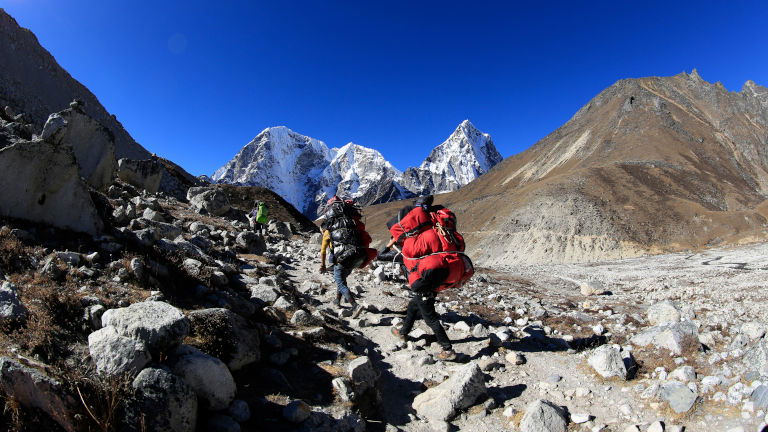
Do I need to bring trekking gear?
What you need for your trip will depend on the tour you have booked and the time of year you are travelling. Your trip notes include a helpful checklist of what to take on your tour. Some trekking equipment (including weatherproof clothing and sleeping bags) can be hired or purchased in Kathmandu should you choose.
What do I do about money matters?
Your itinerary and trip notes will guide the costs that are included in your tour and any costs you need to budget for personally. You will need to set your personal budget for the remaining costs, be that meals, beverages, optional extras, emergencies or end of trip souvenirs. It makes sense to budget more than you need and to take a combination of cash and credit card. Plan ahead for the trail as ATMs can only be found in Kathmandu, Pokhara and Bhaktapur and Namche Bazaar. If your tour goes beyond Nepal, you will need to be prepared with dual currencies.
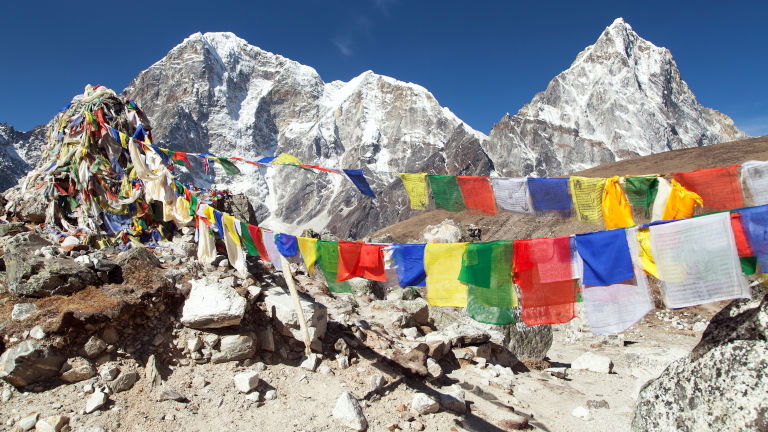
Can I keep in touch with friends and family back home?
Hotels in Kathmandu usually offer good Wi-Fi connections, and these are often free in public areas of the hotel. On the trail to Everest Base Camp some tea houses and lodges may have Wi-Fi for a fee. Electricity may be limited, and outlets are often only available in communal areas (and sometimes payable) so plan ahead to keep your devices charged or consider a portable charger. You’ll have so many good stories and photos to share!
Consult the Experts
This information is provided for general advice only. Please refer to your trip notes for specific information pertaining to your itinerary and consult your travel consultant with further questions. Your doctor should be consulted for fitness and medical guidance.
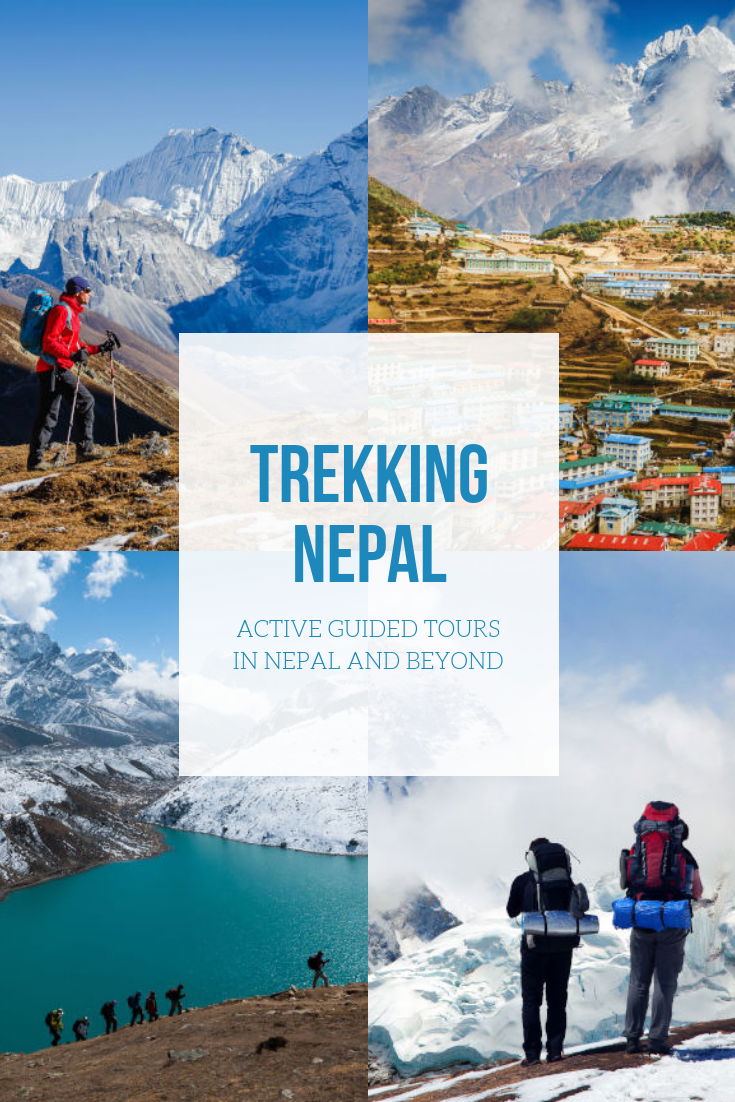
12 October, 2018
Guided Treks in NepalNepal’s dramatic mountain ranges entice hikers with stunning scenery and a sense of triumph as...
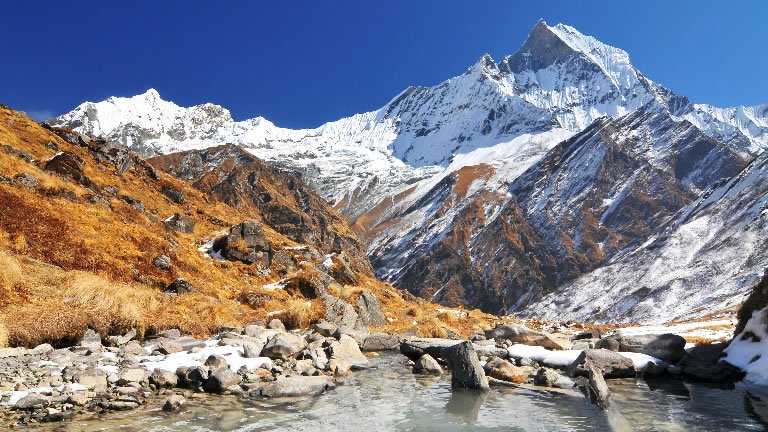
28 September, 2018
Things to Know About Altitude SicknessAltitude Sickness is a concern for many travellers whose tour takes them to destinations at...

29 April, 2024
The Sanctuary Collection: Redefining Luxury on Princess CruisesSet sail in unprecedented style with the Sanctuary Collection on Princess Cruises, available...
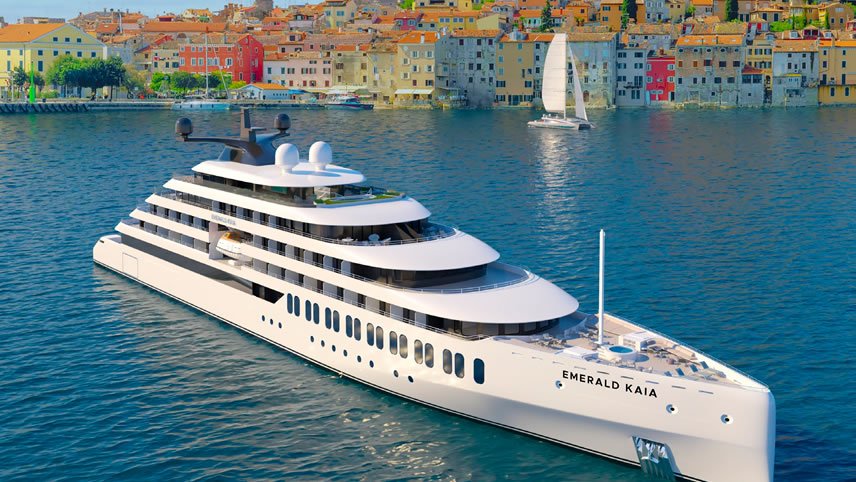
23 April, 2024
Introducing Emerald Kaia: The Next-Generation SuperyachtEmerald KaiaEmerald Cruises has just announced their new chapter in luxury yacht cruising -...
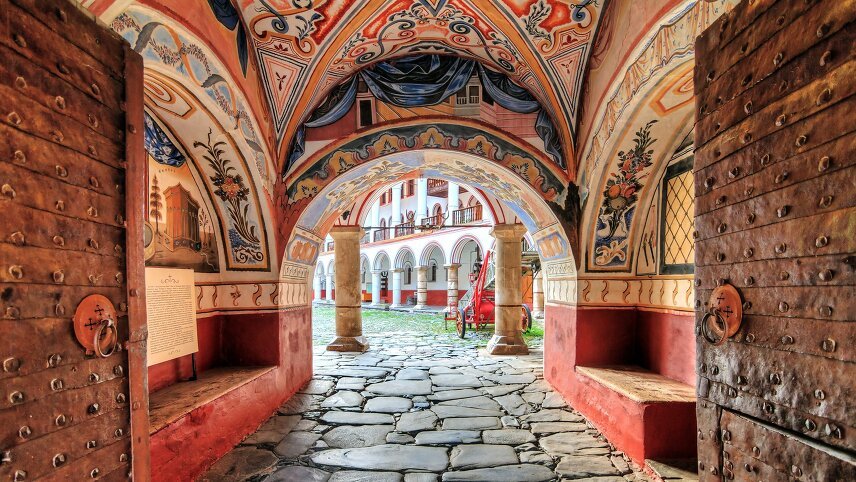
23 April, 2024
Bulgaria's Hidden TreasuresSituated at the crossroads of Europe and the Balkans, Bulgaria is a hidden treasure just...
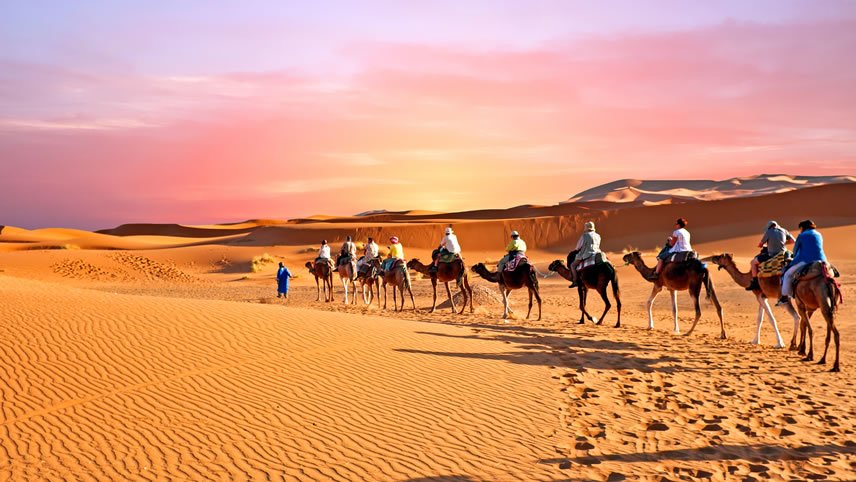
25 March, 2024
Exploring the Moroccan WildernessMorocco is a captivating destination where its vivid culture and historical depth converge,...

27 February, 2024
Cunard's Great Australian Culinary Journey 2025Embark on a culinary odyssey like no other as Cunard's Great Australian Culinary Voyage...

12 February, 2024
A 'Slice of Italy'Ciao Italy! TruTravels is back, unveiling their latest European tour, 'Slice of Italy'. Get...
